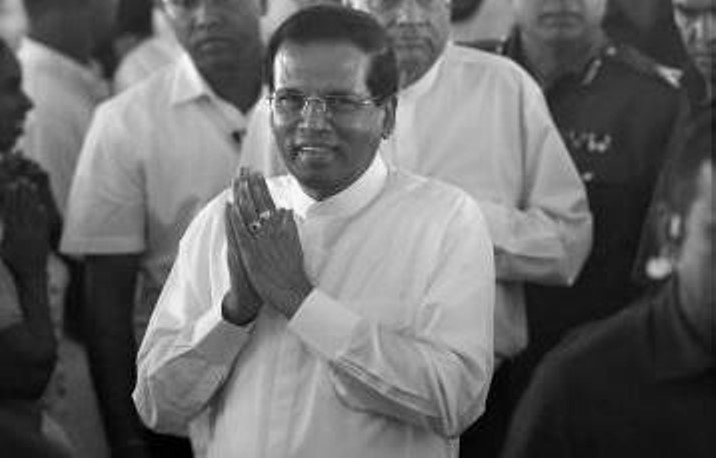Image: In the event of the President’s unwillingness to abide by the norms of democratic practice, the government will face both domestic and international opprobrium.
The political crisis that commenced with President Maithripala Sirisena’s decision to dismiss Prime Minister Ranil Wickremesinghe continues. The sticking point at present is that the President is repeatedly stating both in public and private that he cannot work together with former Prime Minister Wickremesinghe and will therefore not appoint him again as Prime Minister. The parliamentary majority has made it clear through written and verbal statements that their choice is indeed former Prime Minister Wickremesinghe. On the other hand, the President is asserting his authority as the elected President to make his own choice of Prime Minister. His appointment of former President Mahinda Rajapakse as Prime Minister was a controversial choice which led to political chaos which political analysts have identified as akin to a political coup albeit a non-violent one. In this context it is necessary to find a solution that is both constitutional and just.
Conflicts can either be resolved through negotiations or through the law. So far our political leaders have been unable and unwilling to find a negotiated settlement to their conflicts. Even as our political leaders continue to be deadlocked in crisis, and violent in Parliament, attention has turned to the judiciary and to their interpretation of the law as the problem solving agency. It has therefore fallen upon the judiciary to resolve the two main problems that beset the polity. The first is the issue of whether the President has the power to dissolve parliament even before four and a half years have elapsed since the commencement of parliament’s term. The second is whether the Prime Minister can be selected at the President’s discretion. These are issues that need speedy resolution. Our country cannot afford a period in which it has no Prime Minister and no Cabinet of Ministers.
The National Peace Council calls on the President and Parliamentarians to abide by and respect the rulings of the Judiciary and not cause further dissensions in and outside of the parliament. When there is deadlock and the country and its people are hurting, it is important that political leaders should rise to the occasion by respecting the judgment of the Judiciary. Democracy is not only about elections and following the will of the majority. It is also about following the rules of democracy. There is no question of losing face in obeying the decisions of the Judiciary. We call on the President to allow Parliament to determine the Prime Minister. This is in keeping with parliamentary tradition, in which the person who enjoys majority support in Parliament is appointed as Prime Minister.
Finally, we wish to state our deep concern t hat in the event of the President’s unwillingness to abide by the norms of democratic practice, the government will face both domestic and international opprobrium which our country can ill afford. There is an urgent need to recover from the events of the past six weeks as many Parliamentarians have to rebuild their credibility, should they wish to seek re-election following their disruptive and violent behavior in Parliament. The unacceptable behavior of some of them was witnessed worldwide and in Sri Lanka including the younger generation. In a context in which early elections are being proposed as one of the means of resolving this political crisis, we believe that those who behaved in an unparliamentary manner should not receive nominations from their respective parties in order to bring in fresh blood and dignity to Parliament.
-Press release/ National Peace Council
